- Home
- Amy Harmon
What the Wind Knows Page 6
What the Wind Knows Read online
Page 6
“Is someone there?” I called. “I think I might be in trouble.”
The bow of a barge slid into view, and I was suddenly staring up at three men, who in turn stared down at me, clearly as shocked by my presence as I was by theirs. They wore the peaked caps of a bygone era, the brims pulled low over their foreheads, over eyes that peered at me with obvious alarm.
I stood slowly, beseeching, suddenly fearful that I would be stuck in the fog forever and that these men would be my only chance at rescue.
It wasn’t the smartest thing I’ve ever done, or maybe it saved my life.
The men stiffened as I rose, as if my standing posed a threat, and the man in the middle, his eyes wide with tension and his lips thin with mistrust, jerked his hand from his pocket and pointed a gun at me. His hand shook, and I swayed. With no warning, no demand, no reason at all, he pulled the trigger. The sound was a muted crack, and the sudden and violent shuddering of my skiff felt wholly separate from his action, as if a great, whistling beast had risen from the depths of Lough Gill beneath my boat and tossed me into the drink.
The frigid water stole my breath and didn’t give it back. I chased it, floundering, and kicked for the surface, sputtering as my face broke free into the heavy white that was almost as wet and thick as the water I’d fallen into.
I couldn’t see anything but white, endless white. No boat. No land. No sky. No men with guns.
I tried to lean back, to force myself to float and stay silent. If I couldn’t see them, they couldn’t see me, I rationalized. I managed to keep my head above water without a great deal of splashing, listening and peering into the white. Beneath the adrenaline and the clawing cold was a burning fire in my side. I continued treading water, trying to avoid the truth; I’d been shot, and I had to find my boat. If I didn’t find my boat, I was going to drown.
I began swimming furiously this way and that, making a wide circle around the area where I’d fallen, trying to find my boat in the mist.
The whistling began again, abruptly, midtune, as if the whistler had been singing whole stanzas in his head while his lips took a ten-minute breather. The sound warbled and broke and came back stronger, and I cried out again, my teeth chattering around my plea, my arms and legs kicking frantically to keep my head above water. If the whistler was one of the men on the barge, I was only alerting them that I was still alive, but somehow the thought did not occur to me at the time.
“Help me! Is someone there?”
The whistling ceased.
“Help! Please! Can you hear me?”
The life vest with the broken strap was gone. My shoes had come free the moment I started kicking my legs. My clothes were heavy, my cable-knit sweater dragging me down even as I tried to swim in the direction of the whistling.
“Is someone there?” I called again, and my panic made my voice shrill, cutting through the dense fog.
A faded red boat, not unlike the one I’d rented from Jim Donnelly, emerged from the mist like a sea serpent and glided toward me. There was a man at the oars, his features obscured by the thick fog, but I heard him curse in surprise. I was too cold to know if I was hallucinating or dying, or maybe both, but the face looking down at me was strangely familiar. I could only pray I wasn’t imagining him.
“Can you grab on? I’ll pull you in,” he urged. I reached for the mirage and felt the sweet answer of solidity. The boat was real, as was the man, but I could only cling to the side, so grateful I began to cry.
“Good God. Where did you come from?” the man asked. His hands gripped mine, encircling my wrists. Then he was pulling me up and into the boat, with no assistance whatsoever from me. I felt the bump and scrape of the side of the boat against my hip and stomach and cried out, drawing his attention to the blood that seeped from my stomach.
“What the hell?” he hissed, and I cried out again. “What happened to you?” The bottom of the boat was a cloud, and I was boneless, so weary I couldn’t pull his face into focus. He pulled my arms from the sopping sweater that had made it so hard for me to swim. His hands worked briskly against my skin, rubbing and bringing warmth back into my limbs, and I forced my eyes open so I could whisper my thanks. His face was so close, framed by a peaked cap like the ones the men in the barge wore and set with a pair of blue eyes as pale as the fog. They widened as they met mine.
“Anne?” he asked, the incredulous lift of his voice and the familiarity with which he said my name as odd as my predicament.
“Yes,” I whispered, forcing the word between wooden lips. My eyes would not stay open. I thought I heard him ask again, more urgently this time, but my tongue was as heavy as my head, and I didn’t respond. I felt hands on my blouse, pulling it from my body and pushing it over my head. I protested by clutching the fabric weakly.
“I need to stop the bleeding, and I need to get you warm,” he insisted, and brushed my hands away. He cursed at what he found.
“You’ve been shot. What the bloody hell!” His brogue was so like Eoin’s, so comforting and welcome, it was as if Eoin himself had found me. I nodded weakly. Yes, I’d been shot. I didn’t understand it either, and I was tired. So tired.
“Look at me, Anne. Don’t go to sleep. Not yet. Keep your eyes open.”
I did as he commanded, letting him hold my gaze. In addition to the cap, he wore a tweed coat over a wool vest and brown slacks, as though he’d set out for Mass and decided to go fishing instead. He shrugged out of his jacket and vest and tore at his dress shirt, buttons popping free in his haste. He pulled me up and propped me against him, my head bobbing against his chest, which was now covered only in a long-sleeved undershirt. He smelled of starch, soap, and chimney smoke. He made me feel safe. Then he was wrapping his white shirt around my midsection, making a bandage by tying off the sleeves. He put his jacket around my shoulders, enveloping me in his body heat.
I’m going to bleed on his clothes, I thought wearily as he made quick work of the buttons. Then he was easing me back down to the bottom of the boat, tucking the coat firmly around me and draping something larger over that. I willed my eyes open again and peered up at him beneath drooping lids.
The man was staring at me with shock stamped on his handsome face. It was a handsome face, I noted. He was square-jawed with a deep groove in his chin that matched the creases in his cheeks and the slash of his brows. I noted once more that he reminded me of someone. I’d seen him before. I tried to place him, but in my state, the familiarity eluded me.
He slid back into his seat, gripped the oars, and began rowing, digging into the soft swells of the lake as if there was a race to be won, and his urgency reassured me. He knew my name, and I’d been found. For now, that was enough.
I must have slept because all at once I was floating again, lost in the water and the fog, and I moaned in distress, certain the rescue had been nothing but a dream. Then it occurred to me that I wasn’t struggling or sinking, and I realized I wasn’t floating but being lifted, hoisted from the boat and onto the dock. I felt the slats against my cheek and the brush of damp, worn wood beneath my palms.
“Eamon!” my rescuer shouted, and I heard him scrabble up the dock, his footsteps retreating briskly, the slats vibrating beneath my ear. “Eamon!” he shouted again, though this time from farther off. Two sets of hurried feet returned, pulling a cart that made a wop-wop sound against the uneven planks. The man who’d found me on the lake crouched beside me, pushing my hair from my face.
“Do you know who this is, Eamon?” my rescuer asked.
“Annie?” a different voice gasped. “Is that Annie?”
My rescuer cursed, as if the man named Eamon had confirmed something he hadn’t quite believed himself.
“What happened to her, Doc? Who did this to her?”
“I don’t know what’s happened, Eamon. Or what she’s gotten herself into. And I need you to be quiet about this until I do.”
“I thought she was dead, Doc!” Eamon gasped.
“We all did,” Doc murmur
ed.
“How’re ya gonna keep this a secret? You can’t exactly hide a person,” Eamon protested.
“I’m not going to keep her a secret . . . but I need to keep this a secret until I know where the hell she’s been all this time and why someone shot her and dumped her in the lough.”
The man named Eamon was silent then, as if something had been communicated without conversation. I wanted to explain, to protest whatever misunderstanding had developed. But the desire was no more than a disintegrating thought, and when they laid me in the cart—a cart that reeked of cabbage and wet dog—it slipped away entirely. I felt their urgency and their fear, but the fog, not unlike the mist that hid the men with guns, stole my questions and my consciousness.
24 February 1917
Michael Collins was campaigning for Count Plunkett in North Roscommon, south of Dromahair, and I went to hear him speak. It’s only been two months since he was released from Frongoch, yet he’s already in the thick of things.
Mick saw me in the crowd and bounded down the steps when he was finished speaking, grabbing me up in his arms and swinging me around like I was his dearest friend. Mick has that way with people. It is something I have always admired, as it is not a trait I possess.
He asked after Declan and Anne, and I had to tell him the news. He didn’t know Anne well, but he knew Declan and admired him.
I took him home to Garvagh Glebe for the night, anxious to hear what was simmering in Brotherhood circles. According to Mick, the public perception is that we’re all Sinn Féiners. “But Sinn Féin’s core principles vary from my own, Tommy. I believe it will take physical force to rid my country of British rule.”
When I asked him what he meant, he refilled his whiskey and sighed like he’d been holding his breath for a month.
“I’m not talking of holing up in buildings and burning down Dublin. That doesn’t work. We made a statement in 1916, but statements aren’t good enough. It’s going to take a different kind of warfare. Stealth. Strikes on the important players.
“We’re going to reorganize the Irish Volunteers and invite Sinn Féin and the Irish Republican Brotherhood to join us. All the factions that came together in some form or other during the Rising need to come together again with one goal: getting the British out of Ireland, once and for all. It’s the only way we’ll ever win a damn thing.”
When I asked him how I could help, he laughed and pounded me on the back. He stewed for a minute and asked about my house in Dublin. They needed safe houses all over the city to hide men and stash supplies at a moment’s notice.
I agreed immediately, giving him a spare key and promising to contact the old couple who looked after the residence in my absence. He pocketed the key and said mildly, “We’re going to need guns too, Tommy.”
I was silent, and his dark eyes grew sober.
“I’m setting up networks to smuggle weapons throughout Ireland. I know how you feel about taking a man’s life when you’re sworn to save them. But we have to be able to fight a war, Doc. And the war is coming.”
“I won’t run guns for you, Mick.”
“That’s what I thought you’d say.” He sighed. “But maybe there’s another way you can help.” He eyed me for a moment, and I was certain he’d thrown the idea for arms smuggling out first, knowing I’d say no and that it would be harder to refuse him twice.
He asked if my father was an Englishman.
I told him my father was a farmer. His father was a farmer, and his father before him, back for hundreds of years. I told him the land they farmed now lies fallow since my great-great-grandfather was accused of being a croppy and was dragged away by the yeomanry to be flogged and blinded with pitch. I told him my great-grandfather lost half his family in the famine of 1845. My grandfather lost half his children to emigration. And my father died young, working land that didn’t belong to him.
Mick’s eyes grew bright, and he clapped me on my back again. “Forgive me, Tommy.”
“My stepfather was an Englishman,” I admitted, knowing all along it was what Mick meant but feeling the sting of past wrongs that I hadn’t righted.
“So I thought. You are well respected, Tommy. And you don’t have the taint of Frongoch like the rest of us. You have a position and connections that may be of use to me here and in Dublin.”
I nodded my assent, not certain that I really could be of use to him. But Mick said no more, and we began to talk of better days. But even writing of the conversation here, in a book I keep hidden away, makes my heart pound.
T. S.
5
A CRAZED GIRL
That crazed girl improvising her music,
Her poetry, dancing upon the shore,
Her soul in division from itself
Climbing, falling she knew not where.
—W. B. Yeats
I awoke to ruddy darkness and dancing shadows. A fire. A log cracked and fell in the grate, sending splinters hissing and making me jump and then cry out at the flash of pain along my side. The crack sounded like a gunshot, and I remembered, though I wasn’t sure if it was a memory or a new story. It was like that for me sometimes. I would become so immersed in writing that the scenes and characters I created came alive in my head, fleshed out and independently animated, visiting me as I slept.
I’d been shot. I’d been pulled from the water by a man who knew my name. And now I was here in a room that looked a little like my room at the Great Southern Hotel, though instead of carpet, the floors were wood and covered with flowered rugs, the paper on the walls was less purple, and the windows were adorned with long lace curtains instead of the heavy drapes that allowed the guests to sleep in darkness at midday. Two lamps with pleated fabric shades trimmed with drops of glass sat on end tables at each side of the bed. I breathed deeply, trying to determine how badly I was injured. I fingered my abdomen carefully, tiptoeing around the thickest section of bandaging along my right side. It burned and pulled when I moved even slightly, but if the placement of the bandage was any indication, the bullet hadn’t done any serious damage. I’d been cared for, I was clean and dry—though completely naked beneath the blankets—and I had no idea where I was.
“Are you leaving again?” The child’s voice came from the base of my bed, disembodied and startling. Beyond the bars of the brass footboard, someone stood, peering at me.
I raised my head slowly for a better look and immediately abandoned the effort, the muscles of my abdomen contracting painfully.
“Will you come closer, please?” I asked, breathless.
There was a weighty silence. Then I felt the brush of a little hand at my feet, and the bed shook faintly as if the child hugged the edge and used it as cover. The approach took several long seconds, but curiosity clearly won out over trepidation, and a moment later I found myself eye to eye with a small boy. He wore a white shirt tucked haphazardly into dark pants held up by a pair of suspenders, making him look like a little old man. His hair was a red so deep and warm, it was crimson. He had a fine, pert nose and a missing front tooth, the hole visible behind his parted lips. Even in the flickering light, his eyes were blue. They searched mine frankly, wide and measuring, and I was sure I knew him.
I knew those eyes.
“Are you leaving again?” he repeated.
It took me a moment to separate his accent from his words. “Air ya leavin’ agin?” he’d said.
Was I leaving? How could I? I didn’t know how I’d even arrived.
“I don’t know where I am,” I whispered, my words strangely slurred even as I copied his accent. Morphine. “So I don’t know where I’ll go,” I finished.
“You’re in Garvagh Glebe,” he said simply. “No one ever sleeps in this room. It can be your room now.”
“That’s very nice of you. My name’s Anne. Can you tell me your name?”
“Doncha know?” he asked, his nose wrinkling.
“No,” I whispered, though, oddly, the confession seemed like a betrayal.
; “Eoin Declan Gallagher,” he answered proudly, giving me his full name, the way children sometimes do.
Eoin Declan Gallagher. My grandfather’s name.
“Eoin?” My voice rose in wonder, and I reached out to touch him, suddenly certain he wasn’t really there at all. He stepped back, his eyes swinging to the door.
I was sleeping. I was sleeping and having an odd, wonderful dream.
“How old are you, Eoin?” my dream-self asked.
“You don’t remember?” he responded.
“No. I’m . . . confused. I don’t remember very much. Can you tell me? Please?”
“I’m almost six.”
“Six?” I marveled. Six. My grandfather was born in 1915, less than a year before the uprising that took his parents’ lives. If he was almost six, it was . . . 1921. I was dreaming about 1921. I was hallucinating. I’d been shot, and I’d almost drowned. Maybe I’d died. I didn’t feel dead. I hurt—despite the pain medication, I hurt. My head. My stomach. But my tongue was working. In dreams, my tongue never worked.
“Your birthday is July the eleventh, isn’t it? I remember that,” I said.
Eoin nodded enthusiastically, his skinny shoulders crowding his too-big ears, and he smiled as if I’d redeemed myself a little bit. “Yes.”
“And . . . what month is it now?”
“It’s June!” he squealed. “That’s why I am almost six.”
“Do you live here, Eoin?”
“Yes. With Doc and Nana,” he said impatiently, as if he’d already explained as much.
“With the doctor?” The good doctor, Thomas Smith. Eoin had said he was like a father to him. “What’s the doctor’s name, Eoin?”
“Thomas. But Nana calls him Dr. Smith.”
I laughed softly, delighted that my dream was so detailed. No wonder he’d been familiar. He was the man from the pictures, the man with the pale stare and the unsmiling mouth, the one who Eoin said loved Anne. Poor Thomas Smith. He’d been in love with his best friend’s wife.
“And who is your nana?” I asked the boy, enjoying the dizzy dream conundrum I found myself in.

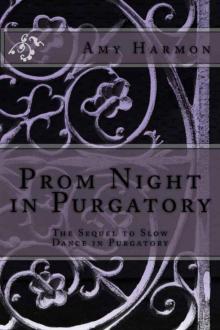 Prom Night in Purgatory
Prom Night in Purgatory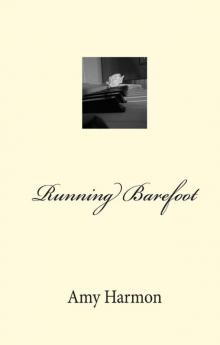 Running Barefoot
Running Barefoot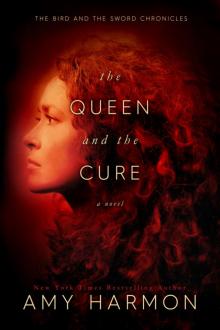 The Queen and the Cure
The Queen and the Cure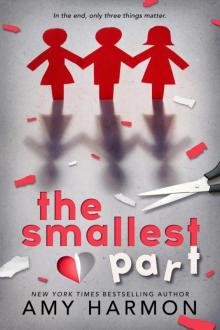 The Smallest Part
The Smallest Part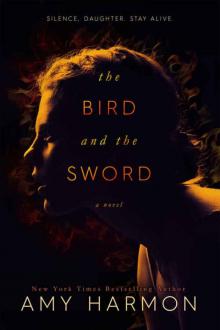 The Bird and the Sword
The Bird and the Sword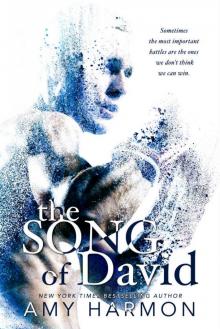 The Song of David
The Song of David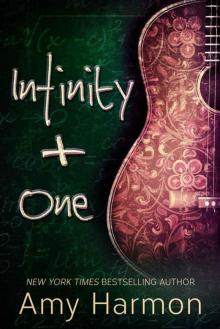 Infinity + One
Infinity + One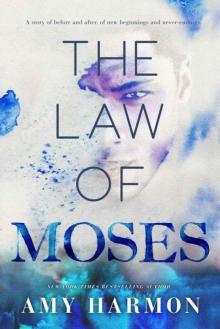 The Law of Moses
The Law of Moses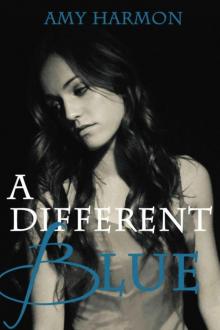 A Different Blue
A Different Blue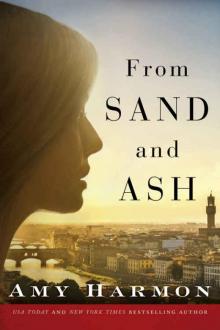 From Sand and Ash
From Sand and Ash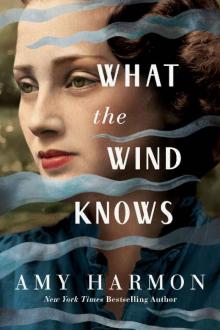 What the Wind Knows
What the Wind Knows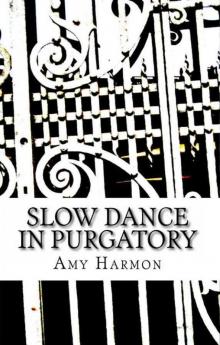 Slow Dance in Purgatory
Slow Dance in Purgatory Romance Through the Ages
Romance Through the Ages